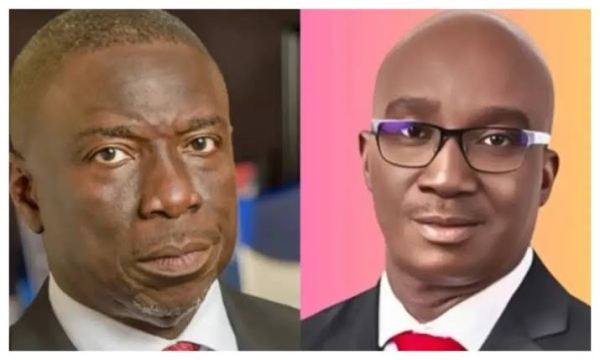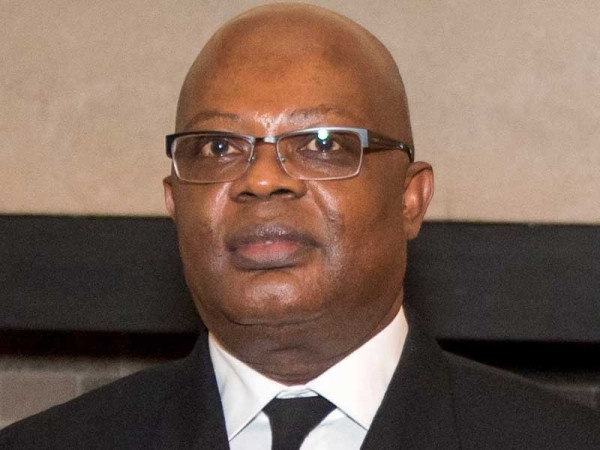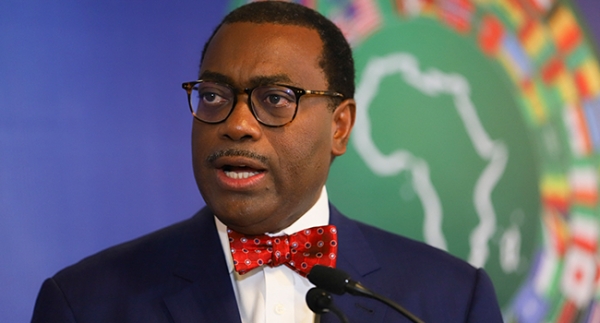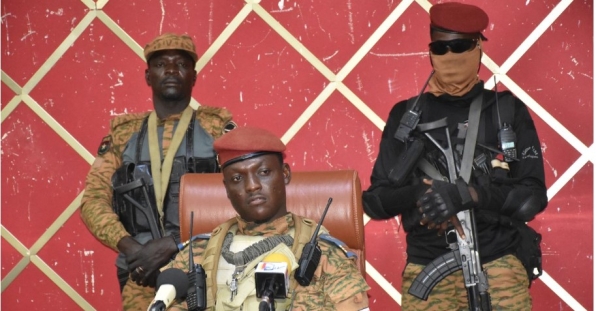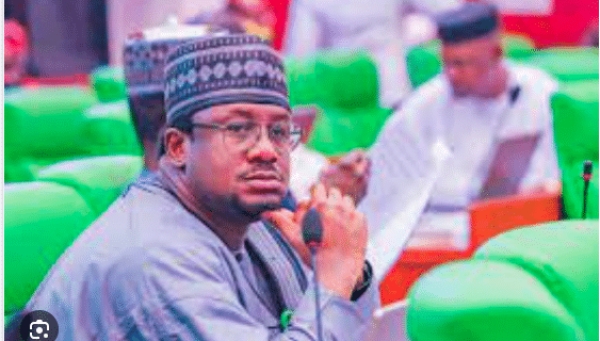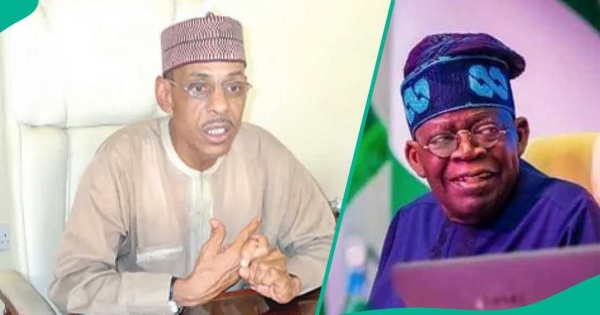TOP NEWS
Reuben's View
Latest News
Search
MOST READ
-
Tinubu Is Aware Of What Could Lead To His Defeat In 2027 Election – APC Chieftain Reveals
-
‘Your Papa No Try, Too Much Empty Promises’ – Eedris Abdulkareem Tells Seyi Tinubu
-
Trusting Tinubu in 2027 will be biggest mistake – Atiku’s aide warns ‘Buhari’s Boys’
-
Igbo Youths Call for Withdrawal of Omokri’s Ambassadorial Nomination
-
Boko Haram Launching Attacks And Kidnapping People Almost On Daily Basis In Borno State – Gov. Zulum Cries Out
-
Natasha Akpoti-Uduaghan slams N5bn suit on Nwaebonyi over alleged defamation
-
Rivers: APC Chieftain Slams Wike’s Camp For Alleged Plot To Prevent Fubara’s Comeback
-
2027: ‘APC Governors Pleaded With Buhari To Stop Malami, Nwajiuba, Others From Dumping Party
-
FG Bars Acting VCs, Rectors, Provosts From Contesting The Same Position
-
Perish Your 2027 Ambitions – APC National VC Tells Atiku, El-Rufai
-
[OPINION] A Psychologist Advises Godswill Akpabio: Let Go of the Struggle, Prioritize Healing for Yourself and the Nation, and Return Natasha Akpoti-Uduaghan Now - John Egbeazien Oshodi
481 times -
U.S. Gov’t Raises Concern Over Tribunal Judgment On Edo Guber Election
477 times -
Rivers State Sole Administrator, Ibas, Set to Present Fresh 2025 Appropriation Bill
469 times -
Ambassadors: Tinubu Administration Screens Femi Fani-Kayode, Femi Pedro, Others
443 times -
Africa must build industries, exporting raw materials is a door to poverty — Akinwunmi Adesina
420 times -
No country has developed under democracy — Burkina Faso President
408 times -
I Lost My Senatorial Seat To Judicial Banditry — Senator Abbo
381 times -
Crude price crash: Petrol can drop below N400/litre — Refiners
374 times -
'I Cannot Steal To Please Constituent’ – Lawmaker Says
371 times -
Hakeem Baba-Ahmed resigns as Tinubu’s political adviser
371 times








![[OPINION] Plateau, Tsiga and Trump - Reuben Abati [OPINION] Plateau, Tsiga and Trump - Reuben Abati](https://www.reubenabati.com.ng/cache/mod_bt_contentslider/d4ff657a4976c08f133a5993db7ca3de-076f7f795e47e1dc74a28ca93d3c698e_XL.jpg)
![[OPINION] The Uromi 16 And The Problem With Nigeria - Reuben Abati [OPINION] The Uromi 16 And The Problem With Nigeria - Reuben Abati](https://www.reubenabati.com.ng/cache/mod_bt_contentslider/848d0c6943c9a9cb7639e8f5640d2cbf-4b585f7414a3fc875b761851d4c5fcd4_XL.jpg)
![[OPINION] Breakfast With The Soludos - Reuben Abati [OPINION] Breakfast With The Soludos - Reuben Abati](https://www.reubenabati.com.ng/cache/mod_bt_contentslider/a98b5c30f61dcb10378fdba9f5e472ab-33b747862875f50d863e709f5955da5d_XL.jpg)
![[OPINION] The Emerging Coalition Against Tinubu/APC - Reuben Abati [OPINION] The Emerging Coalition Against Tinubu/APC - Reuben Abati](https://www.reubenabati.com.ng/cache/mod_bt_contentslider/ddd6416fbaa008a5bcbc568f0e3c8857-02972c9f0dee40a6ad85830afbb49758_XL.jpg)
![[OPINION] Nasir El-Rufai’s Defections: PDP, CPC, APC, SDP - Reuben Abati [OPINION] Nasir El-Rufai’s Defections: PDP, CPC, APC, SDP - Reuben Abati](https://www.reubenabati.com.ng/cache/mod_bt_contentslider/817d1e0c4d951b18f15f406968204870-61d46cc1859ac5d4f70406214a7d7e4f_XL.jpg)
![[OPINION] A World Of Godfathers - Reuben Abati [OPINION] A World Of Godfathers - Reuben Abati](https://www.reubenabati.com.ng/cache/mod_bt_contentslider/f282a08e8e116be2577cc430882505bc-6d66582218d28730d47a7b9a32e18004_XL.jpg)
![[OPINION] Babangida’s Book - Reuben Abati [OPINION] Babangida’s Book - Reuben Abati](https://www.reubenabati.com.ng/cache/mod_bt_contentslider/c8905774fa75570e79f747809f6c142f-4452414e756ce827f8bc4b72b9376062_XL.jpg)
![[OPINION] Ayo Adebanjo and Alaperu Basibo: In Requiem - Reuben Abati [OPINION] Ayo Adebanjo and Alaperu Basibo: In Requiem - Reuben Abati](https://www.reubenabati.com.ng/cache/mod_bt_contentslider/32644a58ca6a6a9730d34e04e0b971d4-29f647f2f922ae7f6d08ba2b3025e7df_XL.jpg)
![[OPINION].The Coming Food Revolution In Lagos - Reuben Abati [OPINION].The Coming Food Revolution In Lagos - Reuben Abati](https://www.reubenabati.com.ng/cache/mod_bt_contentslider/a460cd374cf73b084bed0ea4a95f3470-f0e6dbf155e463f366df4402ca7102d3_XL.jpg)
![[OPINION] From Trump to Grammy Blues - Reuben Abati [OPINION] From Trump to Grammy Blues - Reuben Abati](https://www.reubenabati.com.ng/cache/mod_bt_contentslider/68a7f0df2b79f07ef9aa4da35fd3551f-a59719664df1d85791c7a182eca4b6a0_XL.jpg)
![[OPINION] Tanker Explosions, Avoidable Deaths - Reuben Abati [OPINION] Tanker Explosions, Avoidable Deaths - Reuben Abati](https://www.reubenabati.com.ng/cache/mod_bt_contentslider/d2e1e077711de20c5c40eeecc39c245f-8aaa25cc2241805d2decc75cc3486ec5_XL.jpg)
![[OPINION] The Second Coming Of Donald Trump - Reuben Abati [OPINION] The Second Coming Of Donald Trump - Reuben Abati](https://www.reubenabati.com.ng/cache/mod_bt_contentslider/3b214f2ffde1cfc7a1b2cf68cbf556f8-e0b50b219590b369fb715ce040483314_XL.jpg)





































![[Video/Photos] Wike Hosts Suspended Rivers Lawmakers In UK](https://www.reubenabati.com.ng/media/k2/items/cache/c45212ebe9eb6cf3dd5fe1c24f1eaef5_XL.jpg?t=-62169984000)






































![[Video/Photos] Wike Hosts Suspended Rivers Lawmakers In UK [Video/Photos] Wike Hosts Suspended Rivers Lawmakers In UK](https://www.reubenabati.com.ng/cache/mod_bt_contentslider/7aaea938c6e9abb85fd3f65babe64fac-c45212ebe9eb6cf3dd5fe1c24f1eaef5_XL.jpg)













![[OPINION] Encounters with Omololu Olunloyo - Bunmi Makinwa [OPINION] Encounters with Omololu Olunloyo - Bunmi Makinwa](https://www.reubenabati.com.ng/cache/mod_bt_contentslider/e30d1687d295c3d1f375630871b2f52c-116f28643bf88f184c5c1ecb4f486d60_XL.jpg)

![[OPINION] Plateau, Tsiga and Trump - Reuben Abati [OPINION] Plateau, Tsiga and Trump - Reuben Abati](https://www.reubenabati.com.ng/cache/mod_bt_contentslider/71612cd799e74aa10ecc7c4eeb7d299b-076f7f795e47e1dc74a28ca93d3c698e_XL.jpg)
![[OPINION] Bokkos massacre: The buck stops at the president’s desk - Jide Oluwajuyitan [OPINION] Bokkos massacre: The buck stops at the president’s desk - Jide Oluwajuyitan](https://www.reubenabati.com.ng/cache/mod_bt_contentslider/3618d53cb90f83d7147ef58c660d652f-a74895858081a7c31d679a66e89fc172_XL.jpg)
![[OPINION] President Trump’s Tariffs and the Big Bang Effect - Magnus Onyibe [OPINION] President Trump’s Tariffs and the Big Bang Effect - Magnus Onyibe](https://www.reubenabati.com.ng/cache/mod_bt_contentslider/23d03af5898e8a9603f6533db16ef246-64a9ce67de196b21014e5f8f3febf46c_XL.jpg)























![[OPINION] Why Governments Depend Less on Local Researchers in Nigeria - Tunji Olaopa [OPINION] Why Governments Depend Less on Local Researchers in Nigeria - Tunji Olaopa](https://www.reubenabati.com.ng/cache/mod_bt_contentslider/e6915e757baf3596a28d9d10d16d1215-7e596c84ab5d2a397c253c4d1b29b6f3_XL.jpg)

![[OPINION] NNPC Leadership: Agenda For Faltering Oil Giant - Dakuku Peterside [OPINION] NNPC Leadership: Agenda For Faltering Oil Giant - Dakuku Peterside](https://www.reubenabati.com.ng/cache/mod_bt_contentslider/d10c0490c9dda75a2a777bf1bd8dc8cf-94a3d5fc62c8d13a514f3e3ea2fb1e57_XL.jpg)







![[OPINION] Tinubu administration: Many spokespersons, zero communication - Temidayo Akinsuyi [OPINION] Tinubu administration: Many spokespersons, zero communication - Temidayo Akinsuyi](https://www.reubenabati.com.ng/cache/mod_bt_contentslider/3a6dde56c1ace811631af3683876e41f-b98cc5934c036201f867ff57bca9b273_XL.jpg)





















![[PRESS RELEASE] IGP Directs FID Operatives To Obtain Alhaji Sanusi’s Statement In Kano As NPF Withdraws Invitation Letter [PRESS RELEASE] IGP Directs FID Operatives To Obtain Alhaji Sanusi’s Statement In Kano As NPF Withdraws Invitation Letter](https://www.reubenabati.com.ng/cache/mod_bt_contentslider/d582e3e91d3bd0cfd34210e5942ae4d6-ed0d722f630b1731739ec5400196e3a3_XL.jpg)
![[OPINION] Nigeria and the fading lights of justice - Chidi Anselm Odinkalu [OPINION] Nigeria and the fading lights of justice - Chidi Anselm Odinkalu](https://www.reubenabati.com.ng/cache/mod_bt_contentslider/3b13bf9580c0e6e2b3c4cf4eaf444d97-ef2cf5d11bcf83a4e020129345d98fb5_XL.jpg)




![[OPINION] Can the new NNPCL Board tackle industry's critical problems? - Etim Etim [OPINION] Can the new NNPCL Board tackle industry's critical problems? - Etim Etim](https://www.reubenabati.com.ng/cache/mod_bt_contentslider/da88b4013e9399359a71f68dfb1e8065-74c567d84aae7ad67540243bf4506aa9_XL.jpg)


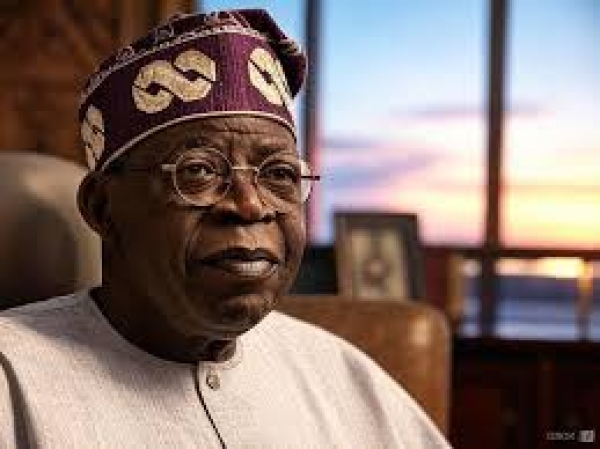
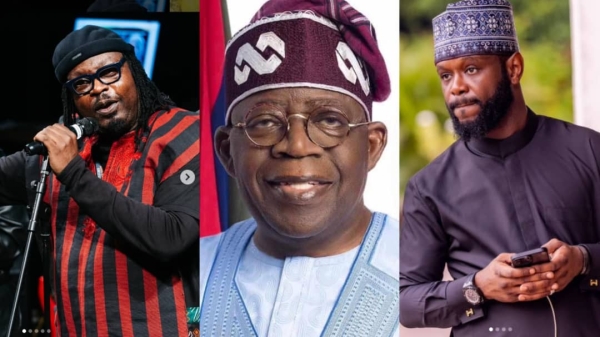
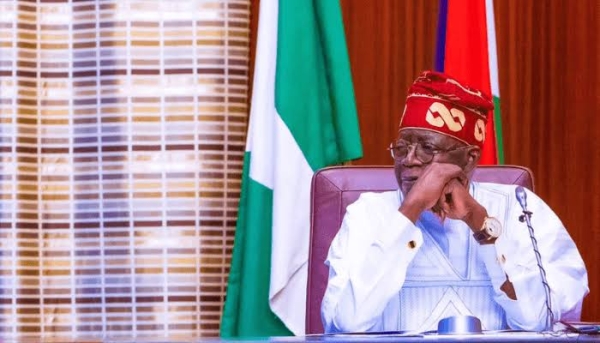
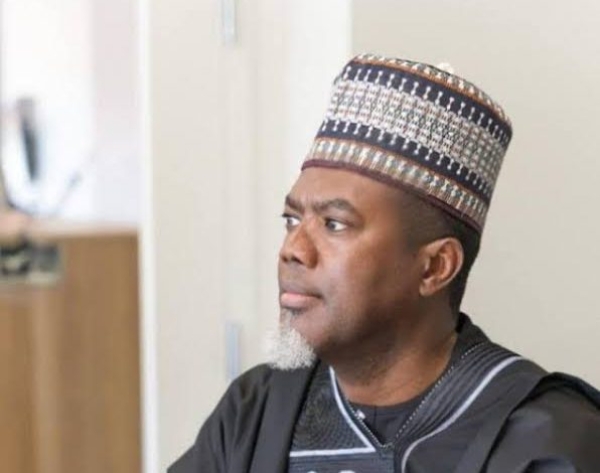
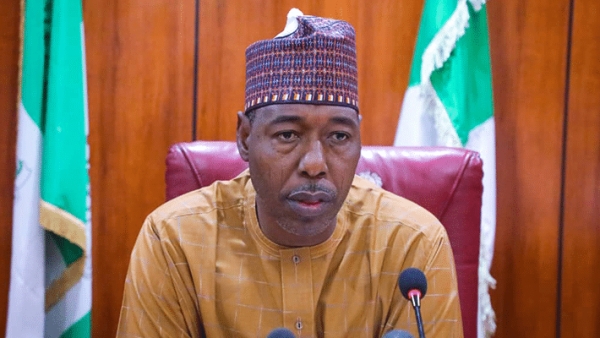
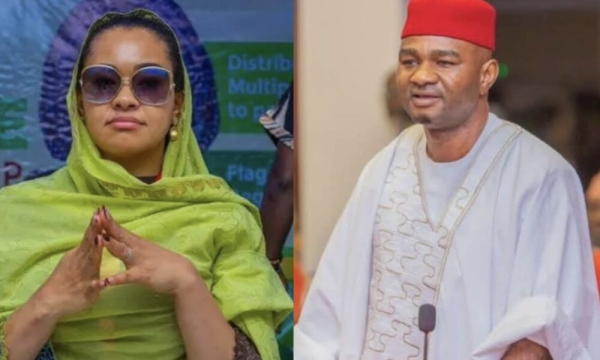
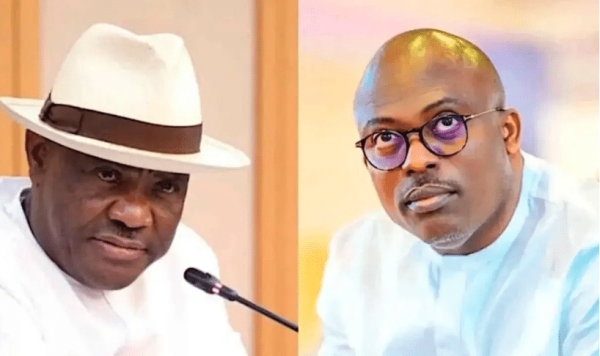
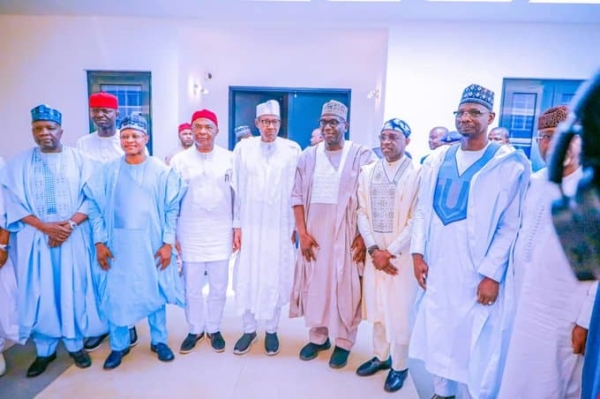
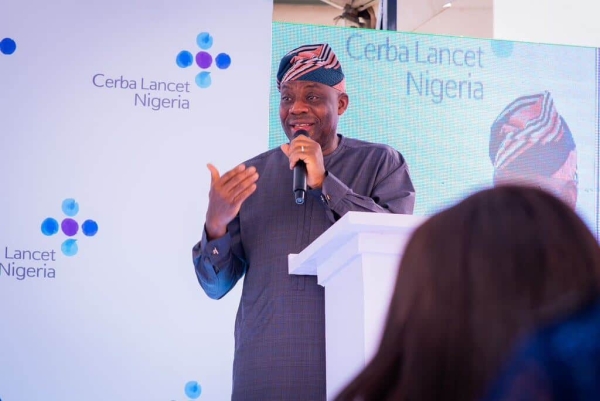
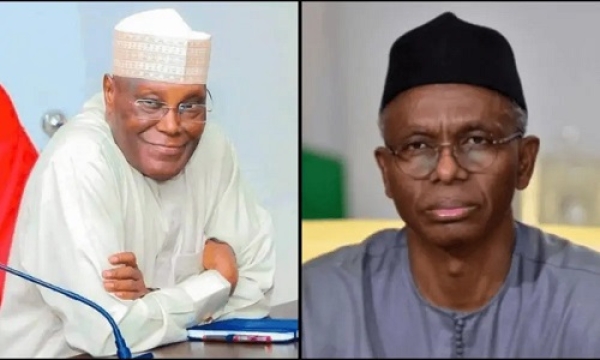
![[OPINION] A Psychologist Advises Godswill Akpabio: Let Go of the Struggle, Prioritize Healing for Yourself and the Nation, and Return Natasha Akpoti-Uduaghan Now - John Egbeazien Oshodi](/media/k2/items/cache/2f0b1c914530ba8d1f3326706436118a_XL.jpg)
